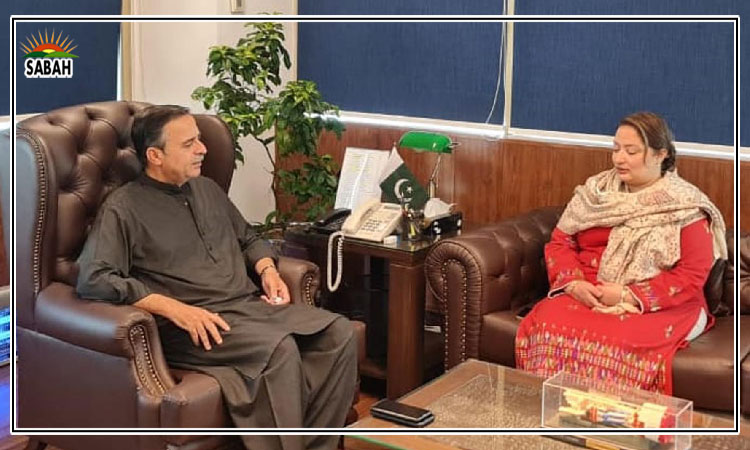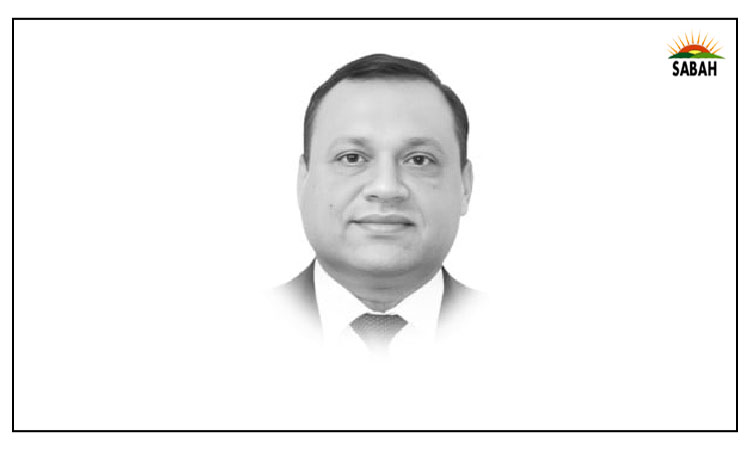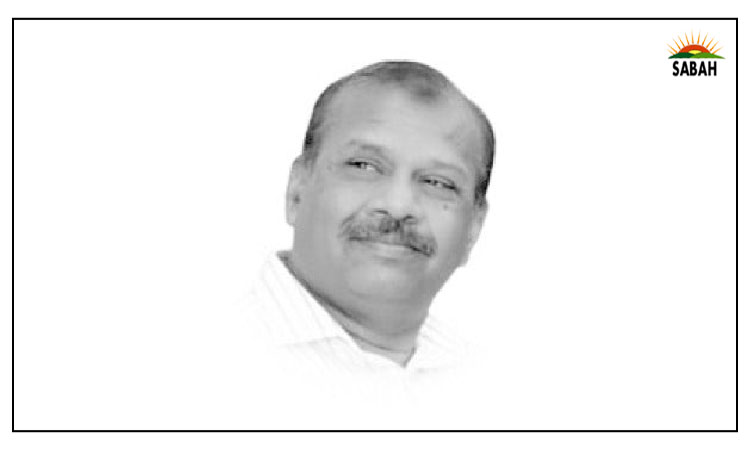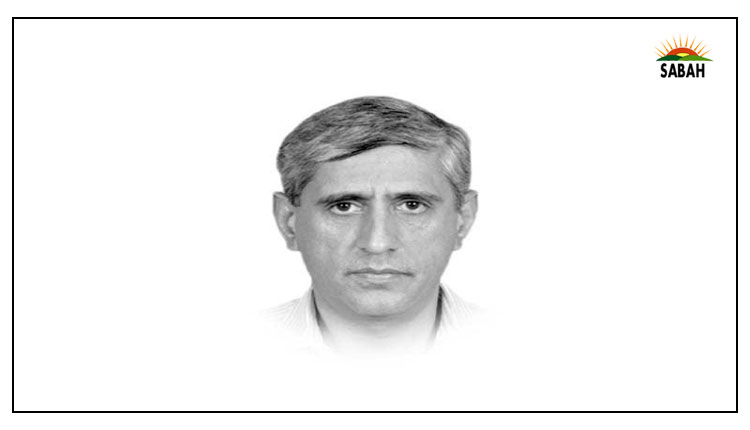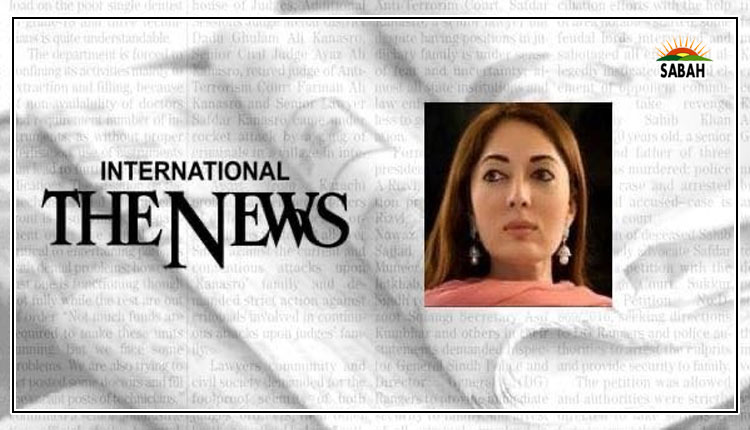Remembering Benazir…..Sharmila Farooqi
Benazir Bhutto, a deeply cherished democratic icon of Pakistan, is recognized globally for her unparalleled personal and political struggle for the people.
Benazir Bhutto served as the eleventh and thirteenth prime minister of Pakistan. When she was sworn in for her term from 1988 to 1990, she became the youngest person and first woman to head a Muslim majority state, having won by a landslide. Bhuttos leadership of the Pakistan Peoples Party (PPP) helped sustain and strengthen democratic institutions in the country during a period of military rule and political instability.
During her term, she was heavily committed to ending poverty and hunger, and bringing housing and healthcare to all areas especially those in the rural regions. However, this progress was not without its obstacles; she was heavily opposed, criticized and impeded by the opposition. She was removed from her post, and her government was dismissed in 1990. Her second term began in 1993, and she was focused more than ever on womens rights planning to introduce women-only courts and take down several laws that undermined womens freedom. However, her government was marred by allegations of corruption and mismanagement. Bhutto was wrongly disqualified from holding public office by the Supreme Court in 1996 and went into self-imposed exile.
In addition to her efforts to promote democracy and womens rights, Bhutto also worked to address economic and social issues facing the country. She implemented economic reforms and sought to improve living standards for the poor and disadvantaged. She also worked to improve relations with other countries and played a role in promoting peace and stability in the region. Some of the key policies implemented by Bhuttos government include:
Economic reforms: Bhuttos government implemented a number of economic reforms, including measures to liberalize trade, reduce tariffs, and increase foreign investment.
Poverty reduction: her government implemented a number of initiatives aimed at reducing poverty in Pakistan, including the establishment of a poverty alleviation programme and the expansion of social welfare programmes.
Education: Bhuttos government implemented policies to improve access to education, particularly for girls and women. This included initiatives to build new schools and improve the quality of education in the country.
Healthcare: Bhuttos government implemented a number of initiatives to improve the countrys health care system, including the establishment of new hospitals and clinics and the expansion of access to medical services.
Womens rights: her government implemented policies to promote gender equality and womens rights, including measures to increase the representation of women in government and the workplace.
Foreign policy: her government worked to improve relations with other countries and played a role in promoting peace and stability in the region. This included efforts to improve relations with India and to address conflicts in Afghanistan and Kashmir.
Benazir Bhutto married Asif Ali Zardari in 1987 and had three children together: Bilawal Bhutto Zardari, Bakhtawar Bhutto Zardari, and Aseefa Bhutto Zardari. Her family life had been a constant string of losses before her marriage. She once said: I have led an unusual life. I have buried a father killed at age 50 and two brothers killed in the prime of their lives. I raised my children as a single mother when my husband was arrested and held for eight years without a conviction a hostage to my political career.
Bhutto and Zardari faced around 90 cases on allegations of corruption and unfair dealings, all of which she battled and won bravely. In the face of all this, she succeeded in raising three children. Bilawal was born in September 1988, while she was campaigning for that years election. When she gave birth to Bakhtawar, she became the first elected head of government to give birth while in office.
Despite the challenges she faced during her political career, Bhuttos contributions to democracy and social progress in Pakistan continue to be remembered and celebrated. She returned to Pakistan in 2007 after living in self-imposed exile for several years. She had originally planned to return to Pakistan in October 2007, but her return was delayed due to security concerns. On October 18, 2007 when she returned to Pakistan she was greeted by an enormous crowd of supporters at the airport in Karachi. However, her return was also met with violence a suicide bombing killing over 140 people and injuring hundreds more.
Despite the security challenges, Bhutto bravely remained active in Pakistani politics. She remained committed to her beliefs and worked tirelessly to achieve her vision for Pakistan, campaigning for the parliamentary elections in 2008. On December 27, 2007 Benazir Bhutto was assassinated while leaving a campaign rally in Rawalpindi. Her death was met with widespread condemnation and triggered widespread protests in the country.
Bhutto faced numerous challenges and dangers during her political career, including assassination attempts and persecution by the government. However, she remained steadfast in her commitment to democracy and the well-being of the Pakistani people.
She was always optimistic. When I met her in Dubai at her home in 2006, she welcomed us with all sorts of hospitality. I remember her as a very affectionate and warm person. She took my mother and I out for dinner at one of her favourite Thai restaurants, and when she saw me shivering in the cold February air, she draped her own shawl over my shoulders. When I looked at her in surprise, she said, Keep it as a token of my remembrance, and when I come to Karachi we will have dinner again. That moment has stayed with me.
Bhutto was a strong and effective leader, known for her ability to inspire and unite people around a common cause. Bhutto had a clear vision for the future of Pakistan and worked to implement policies that would improve the lives of the Pakistani people and promote the countrys development. She hoped that one day Pakistan would be progressive and people would be able to live economically stable lives. She was also known for her deep compassion for the poor and disadvantaged.
Overall, Benazir Bhutto was a highly respected and influential figure in Pakistani politics, known for her leadership, vision, and determination in working for the betterment of the country and its people.
Courtesy The News


